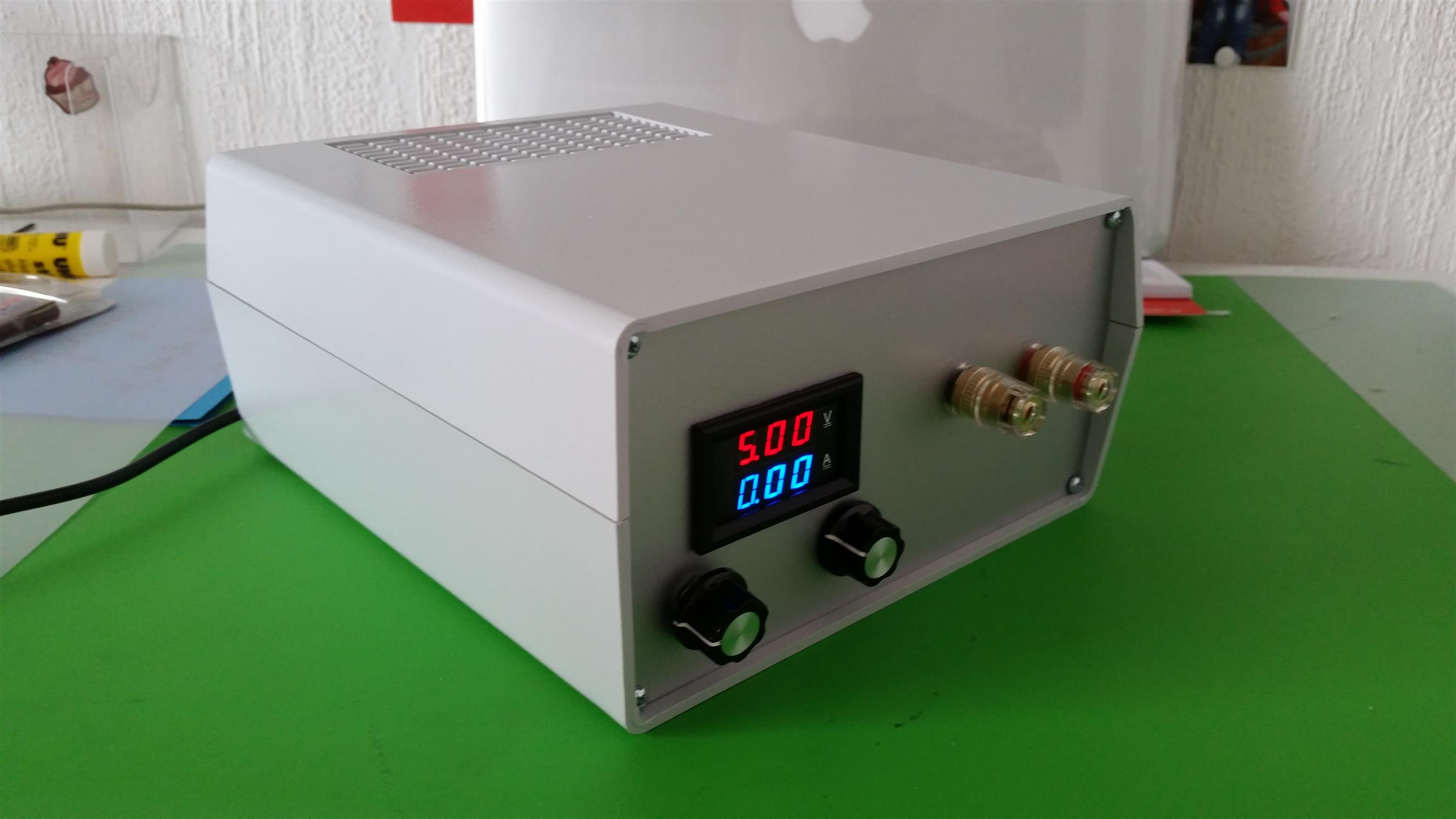Which Lab Power Supply?
-
Some ppl suggest - DIY.
The problem with DIY is that you need to know well what are you doing and you also need tools to debug your power supply when it does not work. Non of that applies to a typical novice.
I suggest getting one of the low-end bench grade power supplies ~$100 on amazon.
Example: http://www.amazon.com/gp/product/B00FPU6G4EMake sure you don't try to save $20 and buy the cheapest possible with low precision pots.
Hi precision pots a re like $10+ a piece alone so you are likely to save nothing if decided to upgrade yourself. I did that and I regret it.One bench power supply is not enough so you can DIY your second one.
-
I recently bought the digital edition of the korad supply http://m.reichelt.de/KA3005P/3/index.html?&ACTION=3&LA=446&ARTICLE=135689&artnr=KA3005P&SEARCH=Korad
And being a sensor / control freak, I bought the one that could be controlled from a computer :) 109€ isn't that bad..
-
As I'm also searching for a new supply (I have a 2 x 30V/3A "LongWei" clone but it drifts like no other.... And I want something lighter). I tend to follow all the threads on the fora I frequent.
On the Tweakers.nl forum I saw a fellow tweaker who had bought one of the Korads and took EEVBlogs motto to heart. And that was a good thing! The wiring is prone to get torn on a sharp metal edge and that includes the line voltage wiring!!!!So if you own one of these, please open yours up and check for abrasions!
The forum is in Dutch but the pictures speak for themselves: C.44 on GoT
My search will continue (the Rigol one looks very tempting. But that fan! :confounded: ) -
I'm also interested to know if there is software for OSX that allows control of a power supply. Most power supplies have Windows software only :-(
-
I am really considering this one:
EEVBlog has a little write up about it. It has a fan but it is variable and they say it is quite:
http://www.eevblog.com/forum/testgear/inside-the-new-korad-ka3305p-linear-psu/
-
What are the benefits of software controlled PSU versus turn-knob style?
-
on a sw controlled, you could have memories for the different voltages that you usually work with (for me that's 3V3, and 5V). Just a single press of a button to set the desired output voltage..
Other than that, I don't see any advantages..
-
It it is software controlled, you could also script things. Useful for testing stuff. Rough emulation of battery powered behavior and such.
-
Just buy a LTC3780 (link), exchange the pots, hook up a volt/amp display and there you have it: your own lab power supply which can deliver 1V-30V // 0A - 8A, 10A peak.
Here's mine:

-
Just buy a LTC3780 (link), exchange the pots, hook up a volt/amp display and there you have it: your own lab power supply which can deliver 1V-30V // 0A - 8A, 10A peak.
Here's mine:

@HenryWhite Looks good. I did something similar (not completely finished) but went too cheap ;-(
A huge (0.3 V) noise/ripple on the output.... Are you able to measure the ripple with the converter you used? And what kind of transformer did you use? -
@HenryWhite Looks good. I did something similar (not completely finished) but went too cheap ;-(
A huge (0.3 V) noise/ripple on the output.... Are you able to measure the ripple with the converter you used? And what kind of transformer did you use?@AWI said:
@HenryWhite Looks good. I did something similar (not completely finished) but went too cheap ;-(
Looks good too!
A huge (0.3 V) noise/ripple on the output.... Are you able to measure the ripple with the converter you used? And what kind of transformer did you use?
I can't measure it, because I don't have an oscilloscope (yet) :smile:
For powering the module, I used an old 12V laptop power supply. -
Any thoughts on a case (ebay/ali) for homemade PSUs?
-
@HenryWhite Looks good. I did something similar (not completely finished) but went too cheap ;-(
A huge (0.3 V) noise/ripple on the output.... Are you able to measure the ripple with the converter you used? And what kind of transformer did you use? -
@AWI , a did a similar thing, but never got the volt/amper meter work properly on the 'negative side'. Mine looks very similar (to not say identical) to yours... Would you mind to share how did you connected the V-A meters?
@rvendrame As far as I remember there are two similar power positive voltage (isolated) power supplies with the meter in the positive line. Then connect the positive line of no 1 to the negative line of no 2.
